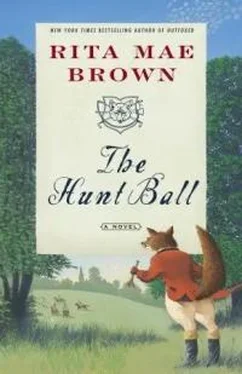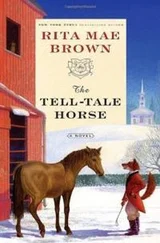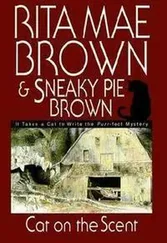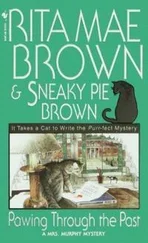“Can’t picture Al Perez,” Rory said as he finished the scrubdown.
“You’ve seen him plenty of times.” Sam rubbed a little Absorbine on Easy’s back, gently massaging the long muscles by the spine. Easy groaned in pleasure.
“Those guys make the best crooks.”
“What guys?”
“The ones you don’t remember.”
That evening, the board of directors convened in the large conference room on the second floor of Old Main. A huge painting of the first headmistress, the founder herself, hung behind the headmistress’s chair. Paintings of subsequent headmistresses surrounded those seated at the oblong walnut table.
The faculty representatives—Amy Childers, William Wheatley, and Alpha Rawnsley, notebooks in front of them—sat on one side of the table, along with Christopher Stoltenfuss.
The administration was represented by Knute Nilsson and Jake Walford, in charge of maintenance, along with Charlotte, of course.
Apart from Christopher, the other community members were Sister Jane, Crawford Howard, Darla Coleridge, a stockbroker in her early forties and an alumna, and Samson “Sonny” Shaeffer, president of Farmers Trust Bank, married to an alumna, Liz, now in her early sixties.
With dignity, Charlotte opened the meeting. She assured the board that counselors were available for the students and that an assembly had taken place that morning to comfort them.
“—get to the bottom of this. I know you want this as devoutly as I do and I ask your help in solving this terrible crime, in restoring balance at Custis Hall.”
Behind her, Teresa Bourbon took notes in shorthand, rarely raising her head.
Sonny spoke first. “Charlotte, board members, this is a profound shock to us all and I can’t look at the empty seat without thinking of Al, who efficiently and with no fanfare accomplished all that was asked of him. It doesn’t seem real, yet when I look at his seat, I know it is.” He looked at Knute, the treasurer, then back to Charlotte. “We can expect some students to be withdrawn, I’m afraid.”
“We’re doing all we can to reassure the parents,” Charlotte forthrightly added, “but until whoever committed this heinous act is brought to justice . . . what can I say to you,” she looked at Alpha, Amy, then Bill, her faculty members, “to reassure parents and students. Also, at this point there is no motive,” she paused, “and that’s deeply disquieting.”
Bill Wheatley, voice equal to the occasion, thanks to decades of training, said, “There are some things we can say that might help allay these justifiable fears. One is that this is not a crime against women. Obvious as that may seem, it may need to be expressly stated. This is a girls’ preparatory school. They are becoming young women, and sexual predators are a sad fact of life. But this is not such a crime. The other thing we can do—and I know, Charlotte, that you and Knute have already taken measures—is we must hire additional security. It will greatly help all, even ourselves, to see a protective presence until this dreadful thing is behind us. Our campus police are too few in number.” Diplomatically, he did not mention that the campus police were not up to the job.
Knute spoke up, “We’ve hired Abattis Security and Jack has oriented them, given them maps, whatever they need. They are already on the job.”
“Strong beginning,” Crawford said as he folded his hands. “Charlotte, I want to congratulate you on how you handled the television interviews. Being able to present yourself is an advantage. It’s print reporters like Greg Baghout who ought to be horsewhipped. His article in the paper was inflammatory, irresponsible. He insinuated that Al’s murder is connected to the issue of slavery in Custis Hall’s heritage. He’s a menace.”
“Menace he may be, but until more facts are brought to light, menace he will continue to be.” Alpha Rawnsley, wise, watchful, and now worried, carefully chose her words.
A silence followed. Charlotte asked almost plaintively, “Does anyone here have any idea how this could happen? What is going on?”
“I can tell you what is going on,” Knute, face now red, said. “Someone hated Al.”
“Or hates Custis Hall,” Amy Childers replied. “Wants to make us look racist.” When everyone stared at her, she added, “He was Latino, you know. We’re in the middle of this, um, slave labor stuff.”
Charlotte looked at the attractive science teacher and thought how nine years ago, when she became headmistress, Amy had been a fresh, enthusiastic woman eager for life. She was turning into an embittered woman, entering the lists of early middle age.
“For God’s sake!” Knute threw up his hands. “That’s far-fetched.”
“We do represent the old WASP ways,” Bill intoned.
“We have the best diversity program on the East Coast”—the color rose to Charlotte’s cheeks—“second to none.”
“But not in terms of faculty hiring,” Amy bluntly stated.
Sister, her voice deep, soothing, finally spoke. “Stereotypes die hard: the money-grubbing Jew, the lazy black, the Mafia-connected Italian, the sex-crazed homosexual. Even though this institution has reached out to the community, done a wonderful job of attracting the best students of all races, the general perception is still that Custis Hall serves rich, spoiled white girls who will go on to Mt. Holyoke. Sorry, Alpha,” she nodded to Alpha, a Mt. Holyoke graduate from the early 1970s, “Smith, Radcliffe, Wellesley, and marry a rich white boy from Harvard, Yale, Princeton, Dartmouth. Now, untrue as that stereotype may be, I doubt it is cause for murder. And I doubt the lack of Hispanics or a better proportion of African Americans on the faculty or administration is cause for murder.”
“Well, what then?” Amy was upset, shaken, and frustrated.
“One kills out of passion, greed, or self-protection. Normal people kill. Abnormal people hear voices or whatever and they kill for quite different reasons, it seems to me. Hanging Al Perez from Hangman’s Tree, if you think about it, was brilliant.” Sister held up her hand to forestall comments. “It’s hard to give credit to such a repulsive act when everyone is grieving, but here we are focusing on the repercussions of that act. A great deal of energy and money will be spent to calm students, parents, and the faculty. The killer has us all focused, worried. I have learned from my quarry, the fox, that things are not always what they seem. Al’s killer has distracted us from his scent.”
“What exactly do you mean?” Bill leaned forward, eyebrows quizzically raised, since he hunted when he could.
“I mean our fox has fouled his scent. The public nature of the act stunned all of us. He’s scooted away for now.”
“But he’s close?” Charlotte understood the language.
“Charlotte, board members, forgive me for using foxhunting terminology,” Sister gravely said. “He is close, he is part of this community, and he obviously has powerful reasons to kill. He’s a fox in the henhouse.”
Crawford bit his lips.
Knute blurted out, “Good God. But I still can’t see why anyone would take out Al. We all worked with Al. He was so good-natured, so good with the alumnae. You had to like him. Everyone liked him.”
Bill twiddled his pencil. “Maybe he was running drugs that came in through Mexico. Amy made a point about his background. Well, he’d be able to talk to people in a way we couldn’t. It’s not impossible, you know, that he may have been involved in something criminal.”
“Oh, Bill, really.” Alpha’s eyelids fluttered.
“We have to think of everything no matter how absurd,” Bill defended himself.
“He’s right, Alpha. Much as we all liked Al, we can’t neglect the possibility that there may have been unsavory aspects to Al’s life.” Knute slumped a bit in his seat, weary from the weight of the hours. “But I can’t think of a one.”
Читать дальше












